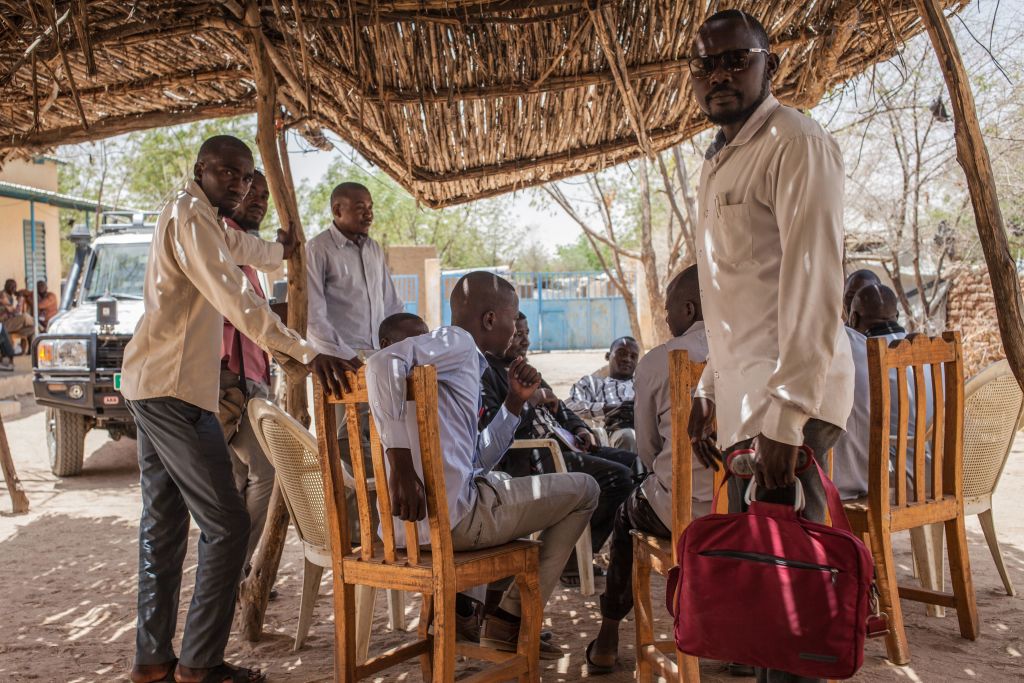ADF STAFF
Fatima Abdallah is among more than 100,000 Sudanese who have fled to Chad since fighting broke out on April 15.
“We will not go back,” she told Al-Jazeera. “We will stay in Chad because here there is a government.”
Chad closed its 1,400-kilometer border with Sudan soon after fighting erupted between Gen. Abdel Fattah al-Burhan, head of the Sudanese Armed Forces, and his rival, known as Hemedti, who leads the Rapid Support Forces.
A continuous flow of people escaping Sudan is overwhelming hospitals and international aid systems in border communities such as Adré. The current wave of displaced people joins more than 400,000 other Sudanese already living in eastern Chad, having fled decades of conflict in the region.
Ethnic ties unite people on both sides of the porous border, where there also is a history of weapons smuggling between Chad’s Wadi Fira, Ouaddai and Sila provinces and Sudan’s Darfur region.
Experts say the situation is ripe for Sudan’s conflict to grow into a larger regional fight even as Chad struggles to address concerns about security, humanitarian aid and the economic impact of the fighting.
Security
On April 20 — five days after fighting erupted — Chadian authorities detained and disarmed a contingent of Sudanese soldiers who crossed the border.
“By detaining these fleeing troops, (Chad’s president) is seeking to avoid the perception that he is allowing the Sudanese army to operate from Chad against the RSF,” Benjamin Hunger, Africa analyst for Verisk Maplecroft, a risk assessment firm, told The Associated Press.
The cross-border ethnic connections pose a potential threat because the region’s militias are built around ethnic identity, according to Hoinathy Remadji of the Institute for Security Studies.
Those same connections could put Chad’s leadership at risk because President Mahamat Déby’s chief of staff, Gen. Bichara Issa Djadallah, is Hemedti’s cousin. Hemedti’s victory or defeat in Sudan could be a huge risk for the transitional President Déby in Chad, according to researcher Daniel Banini.
“In the case of his (Hemedti’s) victory, Chadian Arabs could feel encouraged to try to take power in Chad as well,” Banini wrote in The Conversation.
Humanitarian Toll
The flood of Sudanese refugees entering Chad — 80% of whom are women and children — has happened so quickly, it is straining international efforts to provide them with shelter, food and drinking water.
Ali Salam, a Chadian-American working with the Sudanese American Physicians Association (SAPA), told The Guardian that conditions in a refugee camp in Koufroun were “heartbreaking.”
The rainy season, which arrives in late June, will turn the region’s dirt roads to mud, making it even more difficult to help those in need, and drive an increase in diseases such as malaria, according to aid agencies.
“We know we won’t be able to relocate all of them before the rainy season,” Pierre Kremer, of the International Federation of Red Cross and Red Crescent Societies (IFRC), told Reuters. “We run the risk of a major humanitarian disaster in this area.”
Damaged Economies
Landlocked Chad depends on Sudan for access to international markets for food, refined petroleum products and other imports. The fighting has complicated that system, worsening fuel shortages that began in March and driving up food prices.
According to the Observatory for Economic Complexity, closing the border with Sudan increased prices by up to 70%. In Chad’s capital, high inflation is causing major problems for traders and customers alike as the economic fallout from Sudan’s fighting influences the prices of everything, including Chadians’ beloved red tea.
The tea and the sugar that sweetens it historically have come from Sudan. These days, vendors must get their supplies from Cameroon at nearly double the price.
“Goods are more expensive than people can afford,” Idriss Adam Ismail, a vendor in N’Djamena, Chad, told VOA News. “All of this is because of the fighting in Sudan.”

